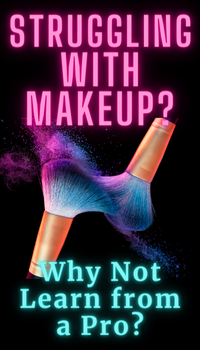Sehnsucht
It is amazing to me that there are so many people who are neither transgender nor transsexual and yet who want to tell those of us who are how we should live. From family and friends to medical professionals to clergy to therapists, all of them think they know something about what we live with and if we will just listen and do what they say then all will be good. This is rather like me as a middle class white baby-boomer telling a black woman that I understand what she went through growing up in Mississippi in the 1960s. That would be an incredibly arrogant and absurd thing for me to say since I have not had the experience of being black in any time let alone in the racist, prejudiced, cross burning south of the 1960s. Nor do I have any experience of what it is like to be a black woman. Yet hundreds of cisgender people, often with the best of intentions, commit this same act of arrogance by assuming that they understand what it is like to be transsexual, and are therefore entitled to give advice or make rules. The plain and simple truth is that they have no idea how we experience life. Even within the trans community, while there are similarities or shared experiences, each of us is unique. For example, I have no experience of what it is like to be, say, a Hmong trans woman or trans man. We may have some similar experiences but we will also have differences that neither one of us can fully grasp. Yet rather than listen to our stories and take us at our word many cisgender people often insist that we are mistaken, don’t understand ourselves, or are simply confused. Some even think we are crazy. In the case of the medical and therapy professions, we must convince them, we must jump through their hoops and over their hurdles, in order to get the treatment we need.
Some say that we should accept that our birth sex determines our gender. If I have a penis then I am a male and must be and act male. If I have a vagina then I am female and must be and act female. But is it really true that my identity is determined by my body? If I smash my hand with a hammer I would not say that I hurt, I would say that my hand hurts. I make a distinction that, while my hand is a part of me, it is not me. Similarly, if I lose a leg in an accident I say I lost my leg. Yet who I am remains the same even though my leg is gone.
My identity, my being, my mind, my soul, my essence, the part of me that is me, or however one wants to phrase it, is not determined by my body parts or lack thereof. Telling a transsexual person they are a boy because they have a penis or a girl because they have a vagina is to reduce that person’s identity to nothing more than a body part. Using this logic if a boy were accidentally castrated then they would no longer be male. Our body is a part of us, but who we are, our identity, is more than our body. Cisgender people never have to think about this because their body and identity agree.
The Germans have a word, sehnsucht, which is difficult to translate into English. It means roughly a profound and intense, yearning, longing, a sense of missing something or incompleteness, a feeling of being homesick, perhaps for a place you may have never been or thing you may have never had and may never have, and yet which resonates as familiar. It is a state of being. For me and perhaps others, this is what it is like being transsexual. It is a longing, a yearning, a knowledge that something is missing in your life and you are incomplete without it. It is like an overwhelming heartache for oneness of body and mind so that the you on the outside matches the you on the inside.
And all around there is a world of people telling you that you are wrong, mentally ill, confused, sinful, even evil. They tell you that you can choose not to be this way if only you will heed their advice and follow their rules. Please understand, no one chooses to be a transsexual woman or man. Neither is it contagious like a cold or the flu. Little Billy is not going to become a trans girl just because his teacher read I Am Jazz to the class. It is something that is a part of you, perhaps even from conception. No amount of advice, condemnation, treatment or anything else has ever or, based on history, is ever going to change that basic fact.
Being a transsexual person is a part of your very being, part of what makes you, you. To ignore and repress it is to live a lie. To hide it is to live in shame. To eliminate it would make you into an entirely different person. At some level, those of us who are this way come to realise this. At least some of us do. We reach a point where we cannot live a lie and we cannot hide. And we understand that even if it were possible to do so, to remove or eliminate that part of ourselves would fundamentally change us. We would be a different person. It would be an act of murder. The only option for us is to accept who we are and do what we need to do to live accordingly. All we ask from others is the grace and respect to allow us to be who we are.
Does this answer to the question Emily was asked resonate for you? Do you disagree? Login and share you perspective in the Comment area below.
Category: Transgender Body & Soul, Transgender Opinion











This is an interesting article, Emily. I hope you write more.
This sentence does jump out at me:
“Nor do I have any experience of what it is like to be a black woman.”
I don’t want to take that out of context but if you take in the totality of the female experience, could you not say just as accurately that you don’t have the full experience of what it is like to be a woman (of any color, etc) especially growing up as a boy, which I assume you did.
I’m not arguing against the mental/psychological reality of transgenderism, but to not acknowledge that the experiences of the female body of the girl/teen/young woman/older woman – having an ‘innie’ rather than an ‘outie’ and the ensuing menstruation, possibility of pregnancy with every sexual act, the sex act itself, and finally the change of life – are profoundly consequential seems dismissive of that half of the human population that is born female.
I do want to repeat what I’ve said before – people should be able to live the way they want – that’s what freedom means.
Thanks Lesleyanne. I specifically chose the wording because in the hypothetical example simply being a woman would still leave one outside the hypothetical person’s experience. She is black and she is a woman. She experiences life differently than white women or black men. That was the point. To read it as you have is indeed to take it out of context and then read into to it an argument I did not try to make or imply.
Good point, Emily.
I was just making the obvious point that just as you can’t know what it’s like to be a black woman, neither can she know your experience as a transwoman.
It’s our universal condition – we’re in different bodies with only our imaginations and empathy to help us to try to understand the other.
I think it’s a positive step that Americans are moving toward more empathy for transgender people, thanks in large part to more visibility via the media.
With gay people empathy grew (and reached critical mass) because so many gay people bravely came out and people began to realize that they had gay family members, friends, acquaintances, and work colleagues. That personal familiarity doesn’t exist to help with transgender progress because the trans population is way smaller.
I think Caitlin, for all the criticism she gets, has done us all a huge service with her media presence. At least folks can say they ‘know’ a transperson.